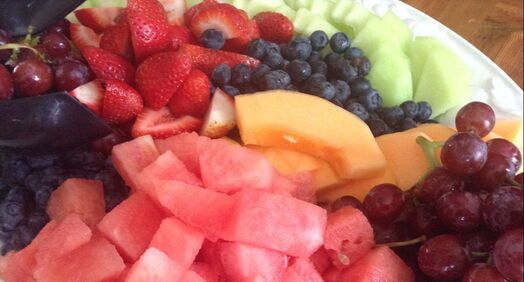|
Buyer Beware. There are new food labeling regulations that went into effect on January 1st of this year. They are supposed to provide a national standard for labeling foods that contain bioengineered (genetically modified/GMO) foods, but there are many exemptions. For instance, a can of stew or soup where the main ingredient is a nonGMO meat, does not have to be labeled as bioengineered if it contains GMO corn. The labeling is determined by the weight of the ingredients. If the bulk of the product is nonGMO, it doesn't need to be labeled. Another example is alcoholic beverages, because they fall under labeling requirements of the FAA(Federal Alcohol Administration Act). Here is the regulation's definition of Bioengineered: A food that contains genetic material that has been modified, and that the modification could not be obtained through conventional breeding or found in nature. However, when it comes to disclosure, “For refined foods that are derived from bioengineered crops, no disclosure is required if the food does not contain detectable modified genetic material.” The regulation goes on to state that testing for detectable genetic material would be difficult to enforce, expensive and present barriers to international trade. What does this mean? It means that there is a good chance that GMOs will end up in most processed foods unless they are labeled otherwise. Products will not be tested for GMOs. Instead, companies will have to show documents that they produced their products with nonGMO ingredients. Also, fresh produce does not have to be labeled under the regulation, and disclosure is optional. The regulation also did not define “conventional breeding” or “found in nature.” The regulation includes a list of current genetically modified foods. “For example, products made from field corn, such as grits, corn chips, corn tortillas, and corn cereal are human foods and may be subject to disclosure if they meet the definition of bioengineered food. The following foods comprise the List of Bioengineered Foods: alfalfa, apple (ArcticTM varieties), canola, corn, cotton, eggplant (BARI Bt Begun varieties), papaya (ringspot virus-resistant varieties), pineapple (pink flesh), potato, salmon (AquAdvantage®), soybean, squash (summer), and sugarbeet.” These foods have been modified for things like non-browning, pesticide resistance, virus and fungus resistance, and enhanced growth. The regulation also states that this list is not exhaustive and will need to be updated in the future. Other exemptions: Ready to eat items prepared by restaurants and supermarkets do not need to disclose GMO ingredients under the regulation. What can you do? 1. When possible, buy from local farmers at farmer's markets. There you can ask questions about their growing practices, and let them know that you are not interested in buying GMO products. 2. In supermarkets, buy organic fruits and vegetables. They will be labeled organic and/or have a PLU # that starts with 9. Organic produce under regulation is nonGMO. 3. Look for the nonGMO project certification symbol. Companies pay this 3rd party company to test their product for the presence of GMOs and give them a certification. The process is expensive for the company, and sometimes makes their product a little more expensive, but they do it, because they know it is important to the consumer and they want to have a quality product. Spending a little more money on food can help save money on medical bills. Why all the fuss about GMOs? The foods that grow in nature were designed to be consumed by the people and animals of the earth. Foods that have had their genes altered, are more difficult to be broken down by the body. The body doesn't recognize the alteration, and doesn't know how to break it down. This causes stress and inflammation in the body which can lead to digestive problems, leaky gut and the body's ability to absorb nutrients. Over time, the body can become malnourished, the immune system can become weakened, and diseases can develop. You can read more about the regulation on the USDA website by clicking this link. https://www.ams.usda.gov/rules-regulations/national-bioengineered-food-disclosure-standard New Year Healthy You 28 Day Challenge Begins February 1st:
Are you in a food rut? Have you been trying to get yourself to eat healthier, but don't know where to begin? Have you been feel unmotivated or just Blah? If you answered yes to any of these questions, consider joining me for my 28 day challenge. We'll be resetting our eating patterns, hormones and stress response. You'll receive a menu of healthy foods to choose from, packet of healthy recipes, assistance with food allergies and dining out, information on working with your cravings, as well as daily inspiration and guidance. Learn More.
0 Comments
|
AuthorI'm a nature loving, garden growing, foodie who loves to eat sweet treats, walk barefoot, snuggle with my dog, discover waterfalls, gaze at the stars,explore my dreams and co-create my own reality. Archives
March 2022
Categories |


 RSS Feed
RSS Feed

